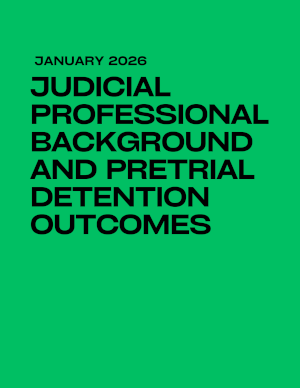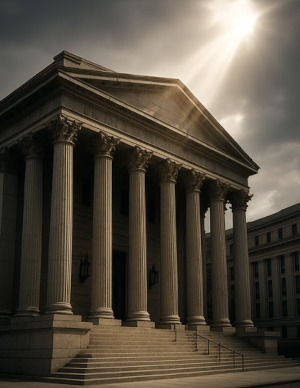State judges wield enormous power with little oversight.
We make their decisions transparent and impact known.
Why State Courts Matter
State courts shape our lives, but their decisions remain inaccessible. We reveal their records to strengthen democracy.

Judicial Profiles
Learn about every state judge in New York. Our profiles make it easy to explore judges’ backgrounds, decisions, and key metrics—so you can understand their records and see who’s up for reappointment or re-election in 2025.
Turning Complex Decisions into Clear Insights
We use data analysis, AI, and rigorous legal research to transform complex judicial data into clear insights, empowering informed public action.

Latest Report
Judicial Professional Background and Pretrial Detention Outcomes
In a peer-reviewed study, we analyzed nearly 70,000 NYC arraignments to examine whether a judge's professional background is linked to their pretrial detention and bail decisions.
From Transparency to Reform
Through FOILs and support for legislative reform, we expand court transparency and strengthen the legal system.

Featured FOIL: NY State Judges data (2026)
We seek a comprehensive roster of all current New York State judges, including court, jurisdiction, appointment dates, term duration, and related information. Our 2025 FOIL made this data publicly available for the first time. We are now requesting updated information for 2026.
Engaging the Public, Informing Policy
We spark public dialogue that shapes policy and promotes accountable, transparent state courts.

Featured Coverage
As Mamdani begins appointing judges, study finds former cops, prosecutors set higher bail
Scrutinize's study of judges' professional background and pretrial detention decisions was featured in The Gothamist.





